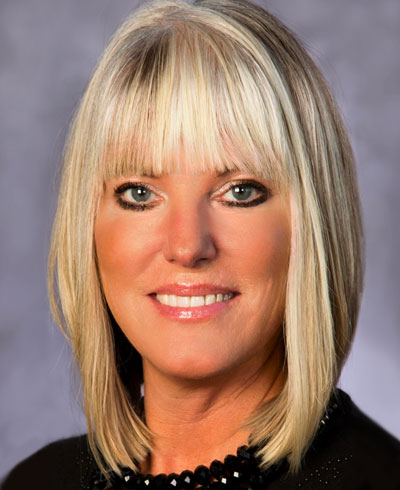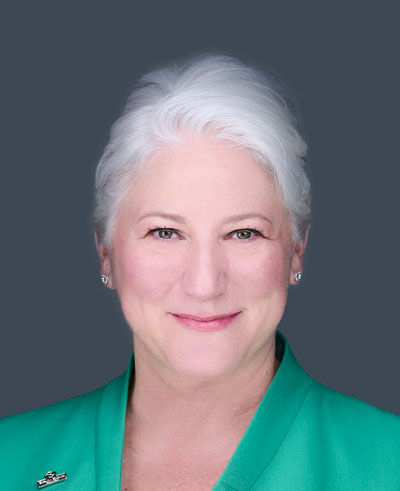Home
Join the movement to create a new generation of Sixth Level leaders.

WHAT IS THE SIXTH LEVEL?
The Sixth Level advances leadership for all leaders. The Sixth Level model is derived from the narratives of 16 women leaders as seen through the lens of Self-in-Relation theory, which defines the psychology of women as oriented to connection and care. This model supersedes Maslow’s fifth level, self-actualization, which is based on men’s psychology and is consequently incomplete.
The Sixth Level model features four core differentiators, qualities that distinguish women’s leadership. These differentiators—mutuality, ingenuity, justness, and intrinsic motivation—redesign leadership. The differentiators promote a collective interest to create healthy social dynamics that, in turn, optimize business results. Women are naturally oriented to exhibit these differentiators, but they can be learned, just as dominance has been learned by women.
The four core differentiators expand the notion of leadership by highlighting qualities in women, long misinterpreted as weak, as essential strong leadership qualities. Finally, the command-and-control model can be left behind. Dominance will no longer be confused with leadership. For the first time, essential aspects of women’s social psychology are defined, reshaping a shared reality that improves the quality of human interaction and improves profitability and sustainability in business.
Watch The Sixth Level Trailer


What You Will Discover:
- A historical perspective, practical leadership examples, and reflective questions that improve your leadership approach and prompt you to grow personally and professionally as a leader.
- A new model of leadership firmly based in social psychology and history that provides an understanding of the social forces from which leaders emerge.
- Strategies and techniques that can be learned by all leaders to support sustainable and profitable organizations.
- A how-to guide for ambitious leaders hungry to shape a better future.
Get connected and sign up for the Sixth Level newsletter.
Praise for the Book
“A valuable read that will be a welcome addition to any academic or practitioner’s library on leadership...The Sixth Level provides a strong argument for why leaders should veer from individualized, isolating, and power-focused strategies to more collaborative, cooperative ones...the book is both well-grounded in existing organizational psychology and innovative.”
BLUEINK – Starred Review
“What an epiphany! The male-dominated leadership model so popular in our culture is no longer sufficient, and we learn there is another, and better way. The Sixth Level reveals four differentiators, central to women’s development, that enable higher level leadership. Their evidence-based sociology of leadership is underscored and amplified by case studies that demonstrate the multitude of competencies, strategies, insights, and principles that these women leaders deploy. This new and necessary narrative by women leaders teaches all of us, men and women, how to embrace and advance to The Sixth Level and drive organizational and community-wide excellence that brings necessary and sustainable change.”
PATRICIA SPRATLEN ETEM, MPH, 1980 & 1984 Olympic Rower, founding member of the Independent Council on Women’s Sports (ICONS) Rowing
“Leaders who use The Sixth Level model embrace human connection as fundamental to complex problem solving in organizations. Embedded in women’s social psychology, ingenuity is one of the core differentiators the authors put forth to reach creative solutions that contribute to the trifecta: productive teams, sustainable communities, and profitability.”
JOSH LINKNER, five-time tech entrepreneur, New York Times bestselling author, and venture capitalist
“This book challenges our thinking and lays the groundwork for a new leadership level that can be applied not just to business, but to society at large. If we take note of the evidence around us and apply new ways of thinking, we will have better leaders and more sustainable and profitable organizations.”
TOMAS CHAMORRO-PREMUZIC, Professor of Organizational Psychology at Columbia University and UCL
“For many decades, leadership development experts have primarily relied on so-called gender-agnostic leadership models. The Sixth Level leverages the authors’ research on women’s social psychology, giving firsthand accounts of how women leaders can achieve more sustainable and profitable results for their teams and organizations. Grounded on powerful research, The Sixth Level enables readers to quickly identify and build upon a Sixth Level mindset that includes collaboration and empathy, to create groundbreaking high performance. I strongly recommend this book to anybody who aspires to be a world-class leader and develop others.”
ANA DUTRA, speaker, author, CEO coach, business advisor, and board director
“This vision of leadership is not an either-or choice between ‘male’ versus ‘female’ styles, but an invitation to incorporate the many neglected aspects of cognitive, emotional, and behavioral empathy that transform transactional hierarchies into generative communities. In calling for a ‘Sixth Level’ beyond self-actualization —‘self-in-relation’— this book points to the need for all of us, no matter what position we hold, to move into an awareness of interconnectedness so that individuals, businesses, communities, and even the planet can thrive.”
BETTY S. FLOWERS, PHD, former director of the LBJ Presidential Library and coauthor of Presence: Human Purpose and the Field of the Future
“It’s not easy to be a female leader in a male-driven world, which is why this book is so incredibly necessary. The Sixth Level is next level because it teaches leaders everywhere that it is possible to build a successful business that is not only profitable, but also fosters connection and innovation, without the 24-7 hustle mentality.”
MEL ROBBINS, bestselling author and host of the award-winning Mel Robbins Podcast
The Authors
The Contributors
Praise for the Book
“This is the future of leadership! Incredibly researched and grounded in the real stories of successful women across industries, The Sixth Level offers a new leadership model for modern business. The authors create the ultimate guide for all leaders to use these critical strengths and groundbreaking management techniques to elevate their leadership. Take your career to the next level and unlock your potential with The Sixth Level.”
DR. MARSHALL GOLDSMITH, Thinkers50 #1 Executive Coach and New York Times bestselling author of The Earned Life, Triggers, and What Got You Here Won’t Get You There
“This amazing book is full of heart and grounded in mindfulness. The Sixth Level is distinctive—it provides an honest critique of why we must move toward healthier relationships and more sustainable organizational culture. Along with new concepts and provocative questions, readers can consider for themselves how practicing the four core differentiators (mutuality, ingenuity, justness, and intrinsic motivation) will elevate their own leadership and the experience of their teams. The collection of narratives is compelling and shows us how to lead successfully at The Sixth Level.”
CLAUDE SILVER, Chief Heart Officer, VaynerX, VaynerMedia
“This book pushes the limit on developing today’s leaders. Full of innovation, optimism, and viable solutions for today’s business problems, The Sixth Level explains the shortsightedness of the dominant leadership paradigm that forces winners and losers, and provides an elevated leadership paradigm with new science and the ethic of care. The Sixth Level offers four guiding principles and a treasure trove of real-life examples that can be immediately applied for better outcomes. Internalize the message of The Sixth Level and then act on it through everyday practice. You will find as you operate at The Sixth Level that these practices will strengthen you personally and allow the people you lead to deliver at the highest level.”
RON STRIEKER, PHD, principal, TheStriekerGroup
“The Sixth Level is as profound as it is practical. In these pages, you will find an evolved model of leadership designed for a complex and unpredictable future. We’ve spent decades thinking and writing about leadership without the practice ever considering women’s perspective on the subject. Sixth Level leadership recognizes the powerful psychological qualities developed in women, and incorporates them into four core differentiators that expand the leadership capabilities of leaders, both women and men. Gratitude sets the foundation and Sixth Level leadership moves us forward.”
CHRIS SCHEMBRA, Wall Street Journal bestselling author of Gratitude Through Hard Times and USA Today’s “Gratitude Guru”
“In the 1930s, my mother earned a bachelor’s degree, then a master’s, and founded Third Federal with my father. She didn’t stop there. Her drive in a male-dominated industry shaped Third Federal and blazed the trail for those who came after her. Her values and compassion live on in how we conduct business to this day and highlight the importance of having women in leadership roles. Who knew that this was called Sixth Level Leadership!”
MARC A. STEFANSKI, chairman and CEO of Third Federal, and author of People First: The Third Federal Way
“At last—an intelligent and well-thought-out book on women’s psychology that would benefit both male and female leaders alike. The authors draw from their personal inspirations and research to highlight unique and valuable aspects of women’s leadership. Unlike many other books in this genre, this is not a rant, but a symphony of ideas that remind us why women are a vital part of the workforce, and how under-leveraged their personal capacities often are in a world previously defined by men. This is a must-read for anyone reflecting on leading in the 21st century.”
SRINI PILLAY, M.D., Harvard-trained psychiatrist and brain researcher, faculty of Duke CE, McKinsey Think Tank member, Chief Medical Officer and cofounder of Reulay, and CEO of NeuroBusiness Group
“To thrive in the future, leaders of organizations must take the initiative to operate at The Sixth Level to create intrinsically rewarding communities for work. The authors explain why The Sixth Level has been unrecognized throughout history and provide a guide for using this new model to build sustainable and profitable businesses. Read this book to learn the innovative practices from women leaders and entrepreneurs whose approaches were once overlooked but now are key.”
RISHAD TOBACCOWALA, advisor, speaker, educator, and author of Restoring the Soul of Business: Staying Human in the Age of Data
Press



Podcasts



 Stacy Feiner
Stacy Feiner Kathy K. Overbeke
Kathy K. Overbeke Rachel Wallis Andreasson
Rachel Wallis Andreasson Jack D. Harris
Jack D. Harris Ali Kindle HOGAN
Ali Kindle HOGAN Sam Allen
Sam Allen Jodi Berg
Jodi Berg Neeti Dewan
Neeti Dewan Megan Eddings
Megan Eddings Jennifer Fondrevay
Jennifer Fondrevay Kirby Gilmore
Kirby Gilmore Karen Grasso
Karen Grasso Sucheta Jain
Sucheta Jain Meghan Juday
Meghan Juday Lisa Lochner
Lisa Lochner Elaine Russell Reolfi
Elaine Russell Reolfi Anne Richards
Anne Richards Lorri Slesh
Lorri Slesh Stephanie Stuckey
Stephanie Stuckey Rachel Yvonne Talton
Rachel Yvonne Talton Meredith Weil
Meredith Weil Sharon Weinstein
Sharon Weinstein